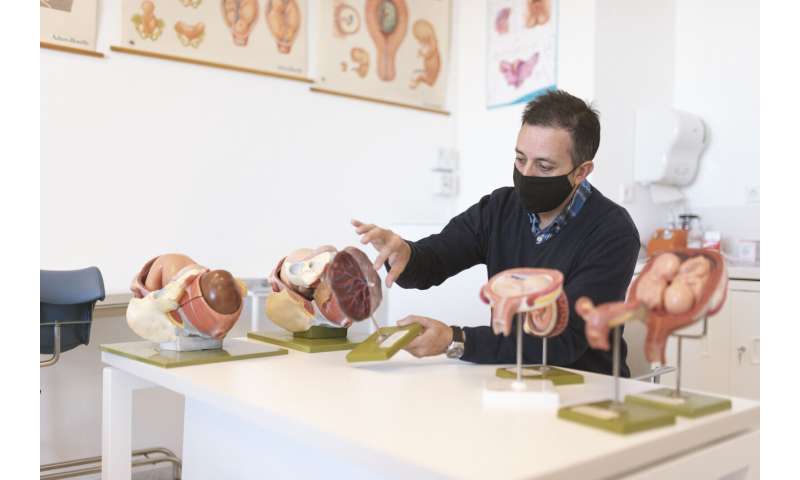New study warns of the stress experienced by pregnant women during the COVID-19 pandemic


A new study now recommends that, in addition to routine medical check-ups, health professionals should also ask pregnant woman about their psychological well-being
There is consensus among studies dealing with natural disasters such as famines, earthquakes and pandemics that the stress to which pregnant women are exposed during such crises has short and long-term consequences on their health and that of their unborn babies. In light of this finding, and given the current COVID-19 pandemic, one researcher from the University of Granada (UGR) is recommending that, in addition to routine medical check-ups, pregnant women should undergo a psychological assessment, to reduce the potential risks of such stress.
Rafael Caparrós González, assistant professor at the UGR, is head of the research project “Psychological and Social Impact of the COVID-19 Pandemic in Pregnancy, Vertical Transmission of SARS-CoV-2, Fetal Development and Child Health” (GESTACOVID). His recent findings have resulted in two articles published in the Spanish Journal of Public Health and the Journal of Reproductive and Infant Psychology.
Caparrós says that on the one hand, it is important to consider the direct impact of contagion with the SARS-CoV-2 virus (which is responsible for COVID-19) on the health of pregnant women; but, on the other, there are also indirect effects that pregnant women may suffer as a result of experiencing the uncertain circumstances associated with such pandemics.
“The current COVID-19 pandemic is giving rise to particular sources of stress for pregnant women. These include lockdown and social distancing, fear of catching the virus, financial problems due to job loss, or home-schooling of children under lockdown conditions. In some cases, pregnant women also have to deal with sharing their home with a potentially violent partner, which increases the risk of intimate-partner violence,” explains Caparrós González.
Assessing psychological well-being
Stressful circumstances are known to have a direct impact on the pregnant woman and her unborn baby. It is known that, for example, those babies who were exposed to the 1918 influenza (Spanish flu) virus during their fetal development were at greater risk of premature death in adulthood from diseases such acute myocardial infarction, of developing metabolic syndrome, or of being diagnosed with autism, schizophrenia or attention deficit hyperactivity disorder.
Both Caparrós and his colleagues Fiona Alderdice (scientist at the National Perinatal Epidemiology Unit of the University of Oxford, United Kingdom) and Miguel Ángel Luque Fernández (Assistant Professor at the London School of Hygiene and Tropical Medicine, United Kingdom, and researcher at the Biohealth Research Institute in Granada, Spain) highlight the importance of taking special care of mental health at this time.
They recommend that pregnant women, in addition to the routine check-ups offered by midwives and obstetricians concerning their physical and medical health, receive an adequate psychological assessment to minimize any psychological risks to which they are exposed—and even more so during the current COVID-19 pandemic. Implementing such assessments would improve the health of pregnant women and therefore that of future generations, and is a practice that is already carried out in other countries, such as the United Kingdom.
Source: Read Full Article